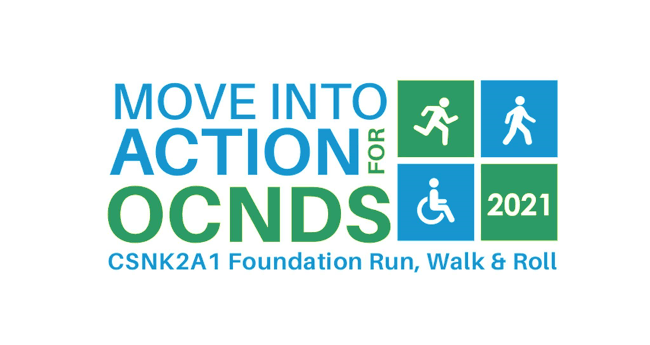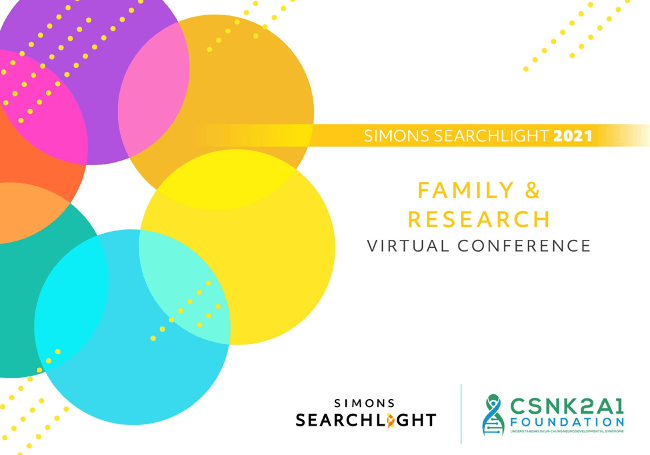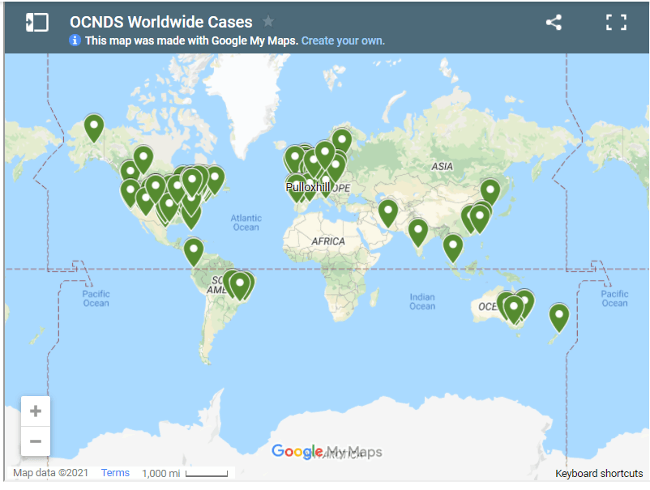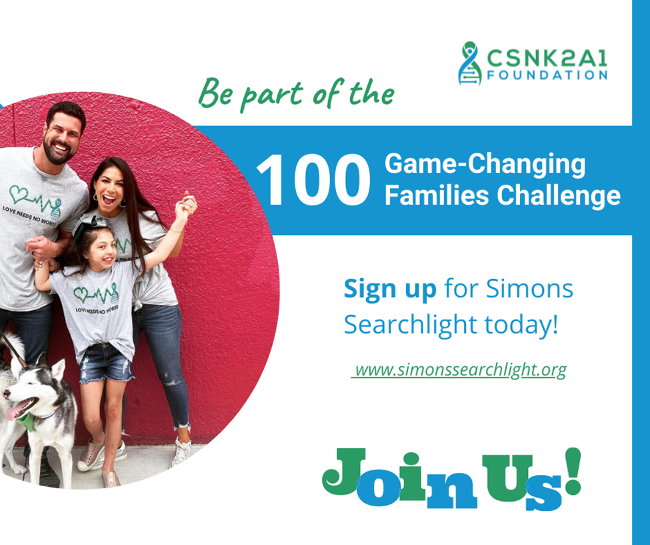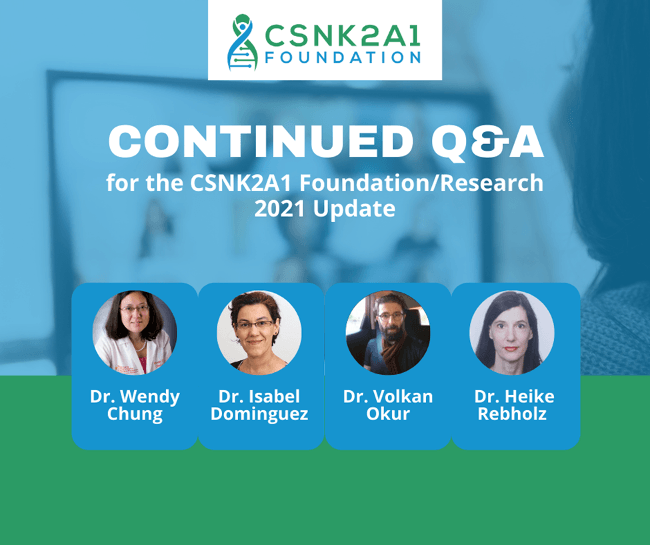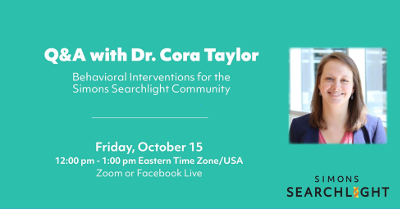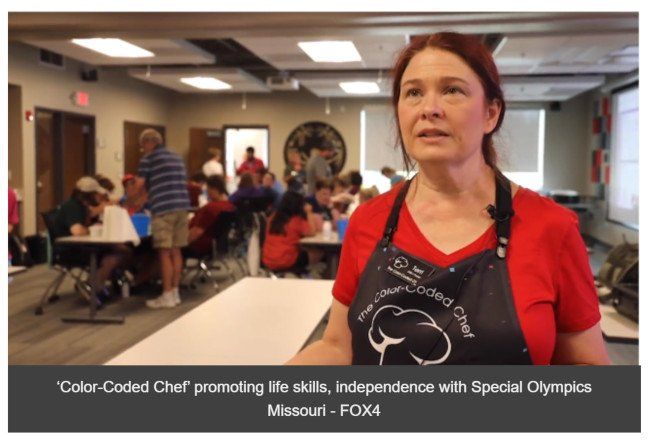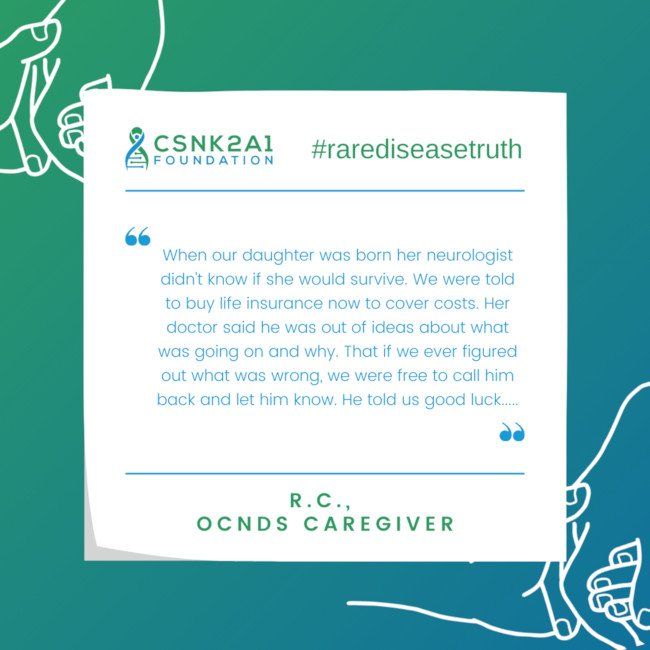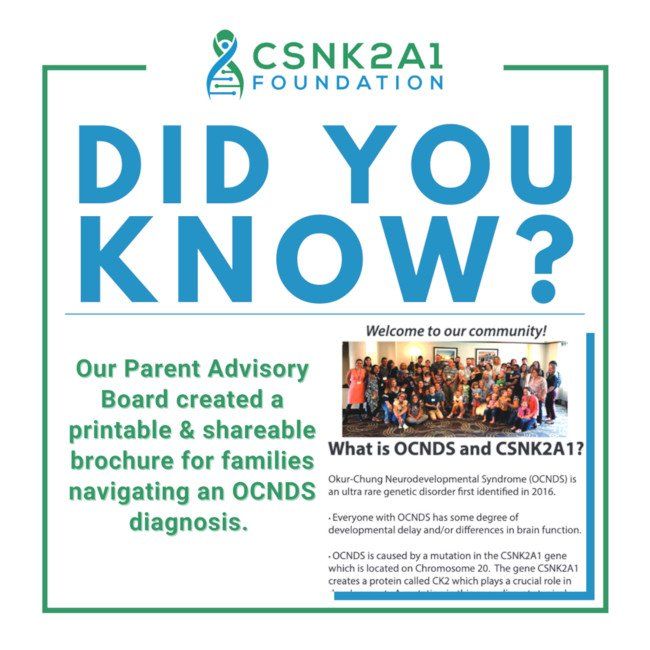Q3 | September 2021 | IN THE LOOP
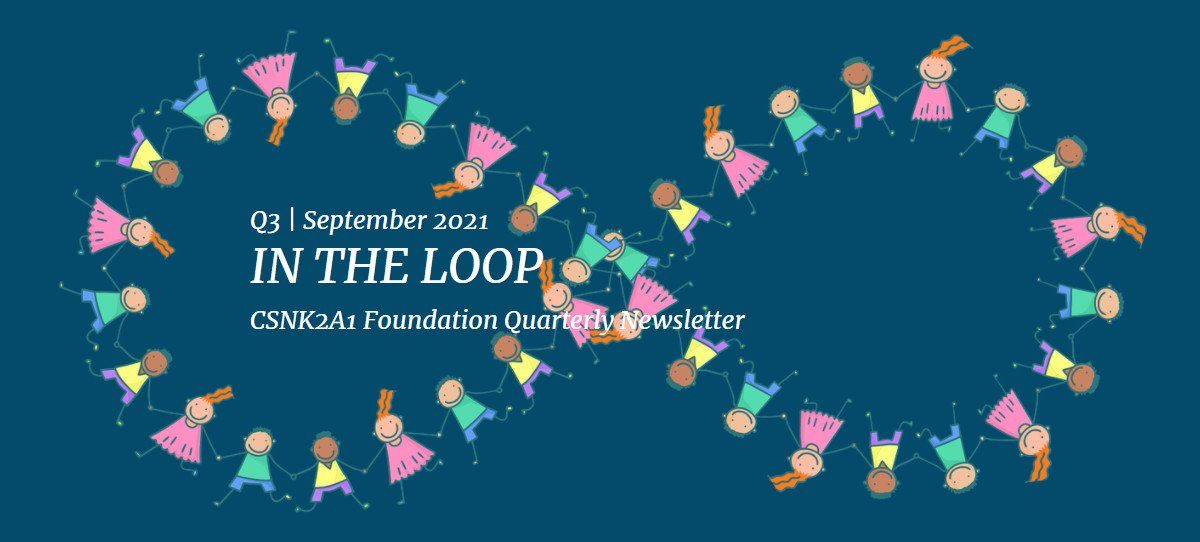
It isn’t too late to participate. And guess what? You don’t need to run to participate. This is called a run, walk, or roll. Our goal is for you to safely come together with others to bring awareness to OCNDS. Invite some friends and family to join you to Move Into Action TOGETHER for OCNDS. You can meet at the park, your street corner, the beach, or anywhere - get out of the house and move! You can RUN. You can WALK. You can ROLL whether on a bike, wheelchair, walker, scooter, roller skates, or rollerblades.
How will you move into action? We can’t wait to see all the creative ways people move into action. Share your Move Into Action photos & videos with us! Remember to tag us in your social media posts!
Videos from our virtual annual conference are NOW available!
We had an overwhelming response to the virtual conference. PAB member Elisabeth Mellinger said, “my favorite session was the one where Dr. Dominguez, Dr. Rebholz, and Dr. Okur talked about research that is happening and how CK2 works in the body.” OCNDS Parent Penelope Gatlin mentioned that her second favorite was Understanding Problem Behaviors in Neurodevelopmental Disorders. Which one was your favorite?
If you didn’t have a chance to tune in live, Simons Searchlight has you covered. Here is a link to the recorded sessions .
For non-English speakers who would like to watch the conference videos on YouTube, there is a closed captioning and language selection on the YouTube video itself. In the YouTube video, you first enable cc (closed captioning) and second use the gear button (Settings) to select your language. Here is a video in English to show you how to enable closed captioning in your native language.
Number of Families Found Q3
100 Game-Changing OCNDS Families - OCNDS Clinical Care Guidelines
Dr. Wendy Chung and Dr. Volkan Okur first identified Okur-Chung Neurodevelopmental Syndrome (OCNDS) in 2016. Most physicians and providers have never heard of OCNDS. When someone is diagnosed with OCNDS, there are no clinical care guidelines for physicians.
What are clinical care guidelines? Clinical care guidelines are recommendations on how to diagnose and treat a medical condition such as OCNDS . Clinical care guidelines are meant to help ensure that patients receive appropriate treatment and care. Currently, care varies wildly from patient to patient without these guidelines.
WE CAN CHANGE THIS! Watch Dr. Chung's Challenge to our community that will lead to the establishment of Clinical Care Guidelines for our community.
Steps to Become a Game-Changing Family
- Sign up for Simons Searchlight www.simonssearchlight.org
- Upload the genetic report of loved one with OCNDS to Simons Searchlight
- If you don’t have the genetic report, no problem. You can sign a consent form and Simons Searchlight will get the report for you.
- Schedule your medical history phone interview
- Complete your medical history phone interview
*Languages supported: English, Spanish & French (other languages coming soon)
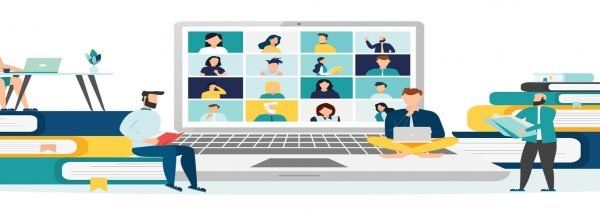
Continued Q&A Session Recording Now Available
Q&A with Dr. Cora Taylor
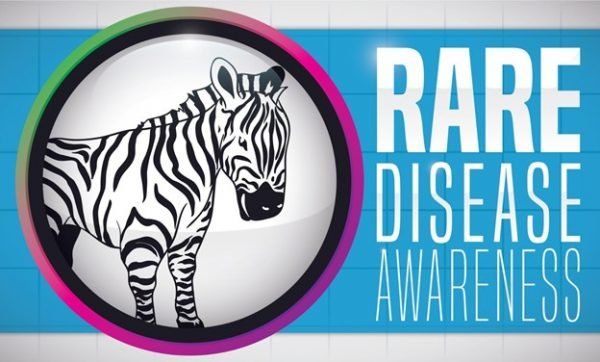
Awareness is the key to acceptance.
We are grateful for all the different ways our community brings awareness to OCNDS.
In September, our President, Jennifer Sills, had the pleasure of being interviewed by Wordly COO, Kirk Hendrickson, regarding the unique challenges our foundation faces in removing barriers for our families to participate in our events (webinars, Q&A sessions, monthly family meetings). It was wonderful to share our story and shine a light on rare disease and the OCNDS community in a non-rare disease space. We continuously strive to make sure that all our families can share their stories and learn from each other. We are grateful for affordable platforms that help us extend our reach and accelerate our mission.
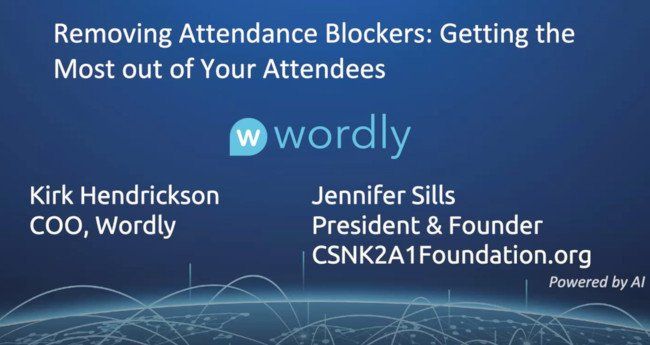
#MilestoneMondays
#RareDiseaseTruth
Rare disease families shouldn't have to rely on luck. They deserve collaborative medical partners on this journey.

#DidYouKnow

Young Scientists Taking An Interest in OCNDS
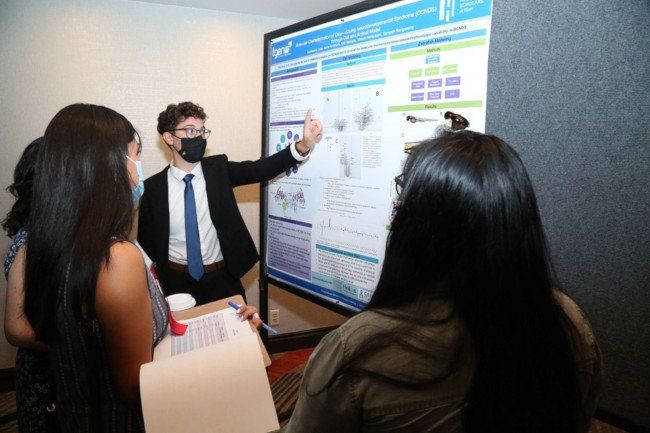
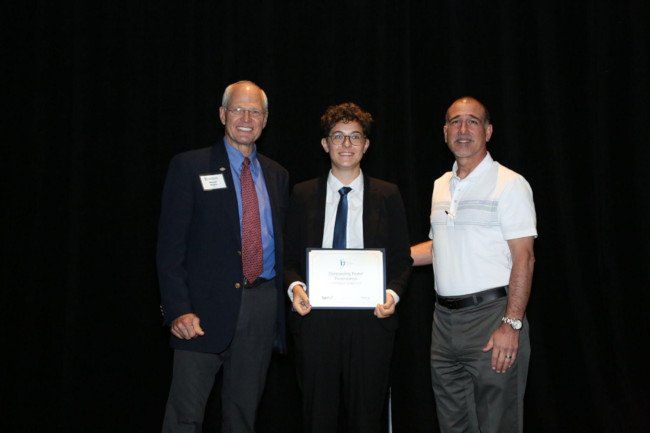
Simons Searchlight Registry Infographic
Have you ever wondered, “how many children with OCNDS have seizures or low muscle tone or suffer from chronic severe constipation?” Every 3 months, Simons Searchlight publishes a registry report that includes answers to questions just like these. Click HERE to view the most current registry report on Simons Searchlight CSNK2A1/OCNDS participants. If you want to be included in future reports, join Simons Searchlight today ! Data presented in this report is gathered from families signed up for Simons Searchlight and who have completed the medical history phone call .
Deletions in CSNK2A1
Q3 Scientific Roundtable
On July 20th, our Scientific Advisory Board and 2 board members hosted 6 institutions and 12 foundation-funded researchers to hear research updates and to discuss next steps. We were thrilled to hear how our researchers are successfully sharing data and collaborating together. We are looking forward to our next roundtable on December 1st.
For information or inquiries about our Quarterly Scientific Roundtable, please email at research@csnk2a1foundation.org
We also have families connect via region or country through WhatsApp or Facebook Messenger to talk more specifically about issues that are specific to their geographic area. If you haven’t joined our smaller WhatsApp or Messenger groups, please contact Jennifer at jennifer@csnk2a1foundation.org and we can direct you to the appropriate group.
August Family OCNDS Zoom Call
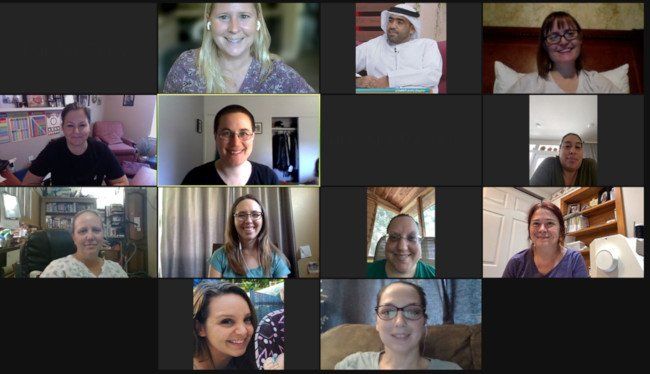
September OCNDS Family Zoom Call
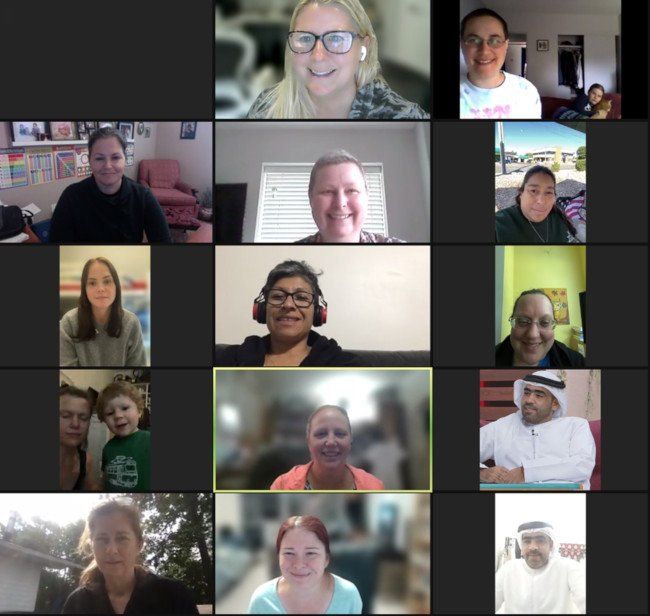
Mark Your Calendar
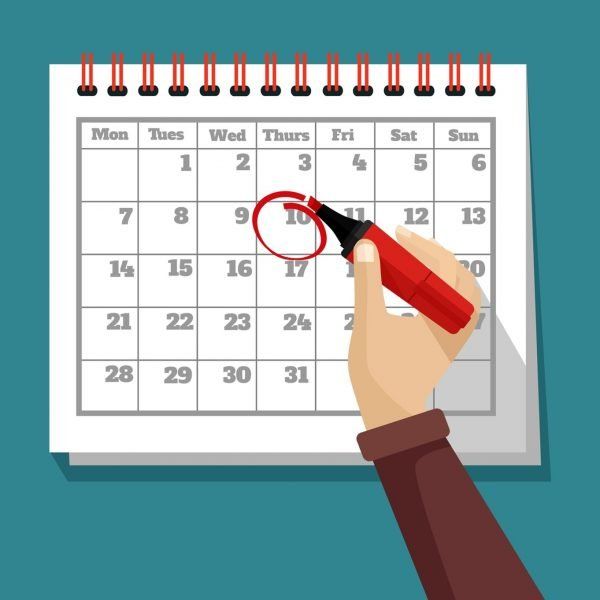
How To Get Involved
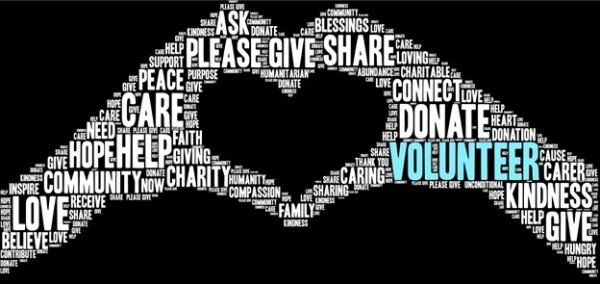
One of the easiest ways to help bring awareness to OCNDS is by sharing our content across social media. One easy way to get involved is to “like” our Facebook page and ask your friends to “like'' our page. Follow us on Twitter , Instagram , and Linkedin .
Have special skills or talents and would like to donate your time? There are many volunteer opportunities available at the Foundation. Email us at volunteer@csnk2a1foundation.org to get involved.
Friends, family, and providers can join our closed Facebook group to share ideas and learn more about OCNDS. Join now .

